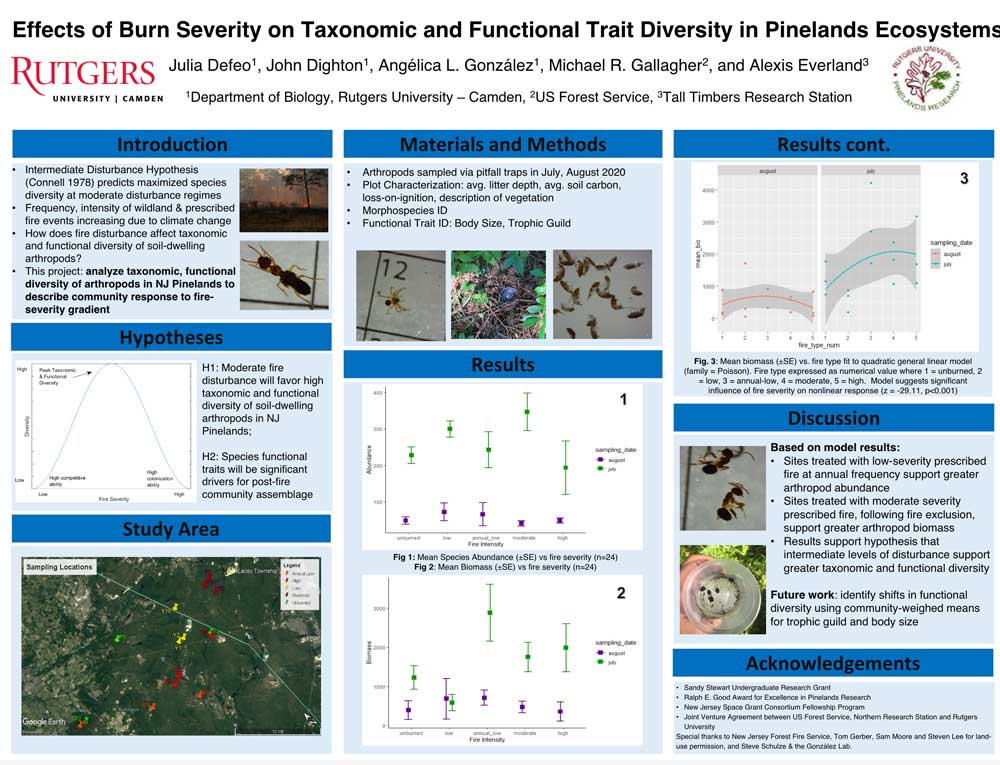Julia DeFeo ‘21
Major: Biology
Affiliation: Sandy Stewart Undergraduate Research Grant Recipient
Faculty Mentors: Dr. John Dighton, Professor Emeritus of Biology, and Dr. Angélica González, Assistant Professor of Biology
Abstract
The role of ecological disturbance in shaping the structure and function of ecological communities is widely recognized but poorly understood across different functional groups, which can have contrasting responses to environmental change and stress. For soil and ground-dwelling arthropods, fire events are known to cause local extinctions and subsequent rapid colonization by regional community members with high dispersal ability. This ongoing research study will characterize the effect of fire severity on the taxonomic and functional diversity of surface-dwelling arthropods in the New Jersey Pinelands, a high-disturbance ecosystem. Preliminary results indicate that taxonomic diversity peaks at moderate disturbance intensity, in accordance with Connell’s Intermediate Disturbance Hypothesis. Additional analyses will include determination of body size, dispersal mode, and trophic guild for each genus. It is hypothesized that moderate disturbance intensity will also correspond to peak functional richness via maximized dispersal ability and reduced competition, compared to low and high fire severity plots.
Preview

